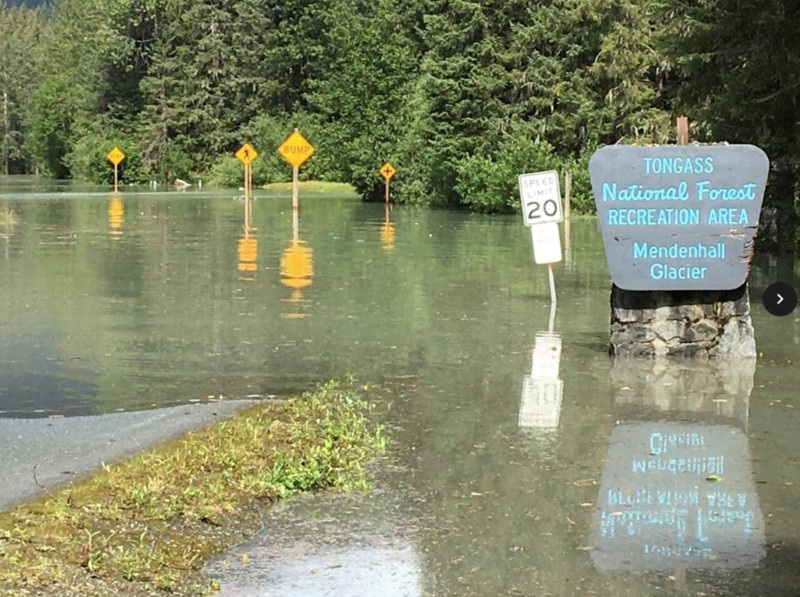(Reuters) - More than 100 homes in Alaska's capital Juneau have been damaged by a glacial dam outburst north of the city, an increasingly frequent phenomenon exacerbated by climate change.
The flooding began on Monday night after water spilled out from the glacial lake at Suicide Basin, which annually fills with rainwater and meltwater and is usually dammed by the retreating Mendenhall Glacier. If enough water fills the basin, it can burst through or overtop the ice damming it in.
The overflow crested at about 3 a.m. on Tuesday, with the Mendenhall River at 15.99 feet, the National Weather Service said. The river's levels had dropped back to normal by Wednesday.
Local authorities had warned residents near the river to take precautions and opened a local school as a shelter. City officials said no injuries have been reported.
The flood came almost exactly a year after a record-breaking glacial dam outburst at Suicide Basin caused similar flooding. In 2023, the Mendenhall River crested at 14.82 feet, the National Weather Service said.

The risk of glacial dam outbursts has been exacerbated by man-made climate change, which causes glaciers to retreat and has increased the number and size of glacial lakes.
The U.S. Geological Survey has monitored the Suicide Basin since 1965 but it was not until July 2011 that a glacial dam outburst was recorded. Since then, the basin has burst more than 30 times, the National Weather Service said.